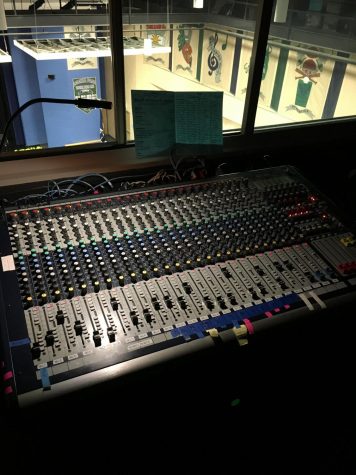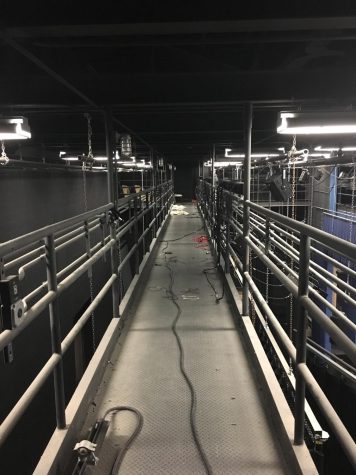A Day in the Booth
February 13, 2018
Being a high school light or sound technician is more demanding than one might think. These people are the unsung heroes of stage productions and without them the show could not go on.
Justin Holtschneider (‘19) is technically considered the “Master Electrician” of the crew. The crew consists of a team ranging up to four people. They do their work in total anonymity in that dark little booth in the rafters of the Forge auditorium.
“We do anything ranging from band concerts to dance recitals and mainly what I do is I’ll run the light and the sound board. The light board controls the house light and the general wash.” said Holtschneider.

The days can be long and exhausting, but often the payoff is great. On one occasion Justin earned $450 for one weekend of work. “It was for a dance recital. I had to work 40 hours in 3 days. I worked 13 hours for two days and then 14 for the last day,” Holtschneider said.
Big events don’t come around every weekend so working the long hours makes it worthwhile.
“The events aren’t that often. The band concerts are normally seasonal and same with chorus concerts, so it isn’t that much. Then the talent show is only once per year and dance recitals normally come in the spring and winter,” Holtschneider said.
Preparation is key and one little mistake can leave a glaring mark on a show. 
“For the talent show all we use is the spotlight unless it’s a dance, then we’ll put up certain lights that they can ask for and then what they’ll do is they’ll give us cd’s that we have to practice with and learn” Holtschneider said.
“We will come up with a lighting that is suitable to both what we have for our shows and what they want it to look like. During class we work to perfect the lights for our Drama productions and create interesting lighting designs,” said Abby Contreras (‘19), a fellow technician.
Their inner perfectionist is often what makes them create a quality product. While they do have a supervisor, they are often relied on to do much of the work themselves.
“One of our jobs is training new light ops” Miranda Fleck (‘18) said. “It’s only difficult if they’re afraid of heights because we have to do so much of our work on the catwalk.”
Ultimately, they all understand the importance of their job and how crucial training the operators for future years will be.
“The training typically goes pretty smoothly,” Fleck said. “It’s a lot of repetition and encouragement, but we all know how important it will be down the line.”

